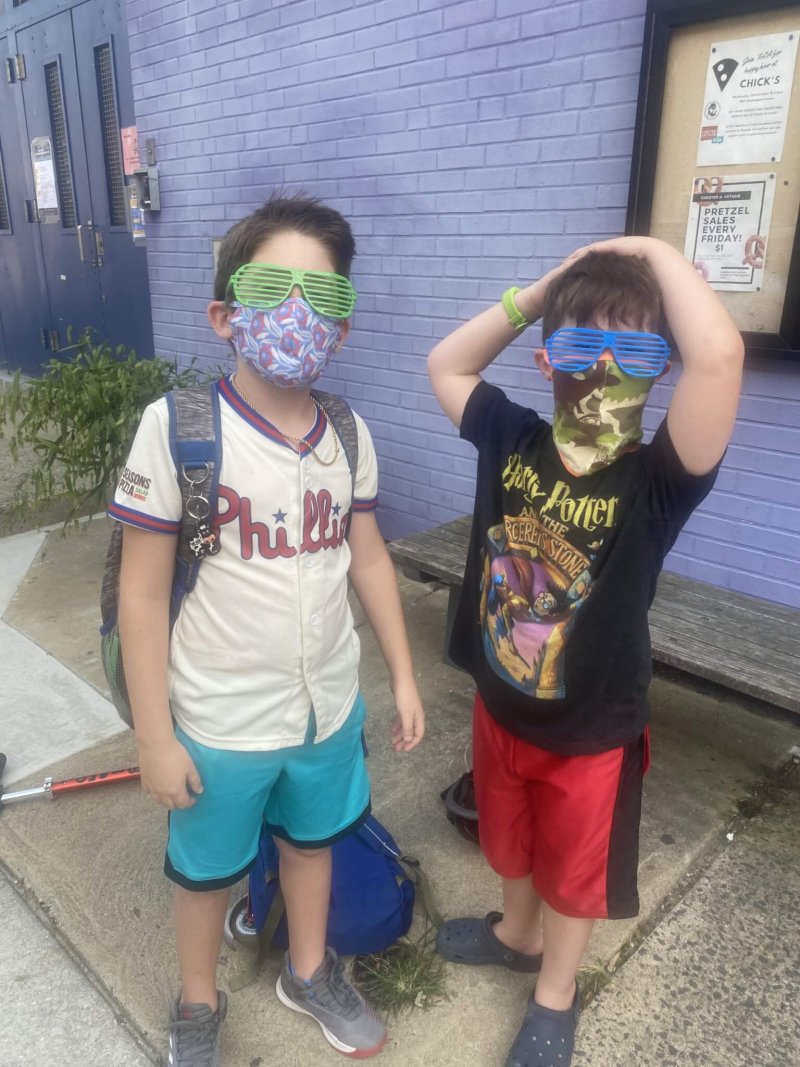
Welcome back to Jewish Enrichment at Makom Community! What a fabulous first week of learning and playing with your kiddos. We started off our week with some name games, get-to-know-you-ing, and conversations about how to keep ourselves and each other safe and happy. Other than practicing our Covid-19 safety plans and procedures, we also spent time envisioning how Makom Community can look like a welcoming learning community. Here are some ideas the Garinim (PreK and K kiddos) came up with:
- Love each other (air kisses/hugs/high fives)
- Have a big fish tank
- Books
- Be nice
- Do fun stuff (games and toys)
- Hospital – should include a place to go if you’re hurt
- Sharing
- Feeling safe
- Being ourselves
- Helping each other get what they need
- Respecting bodies, space, and stuff
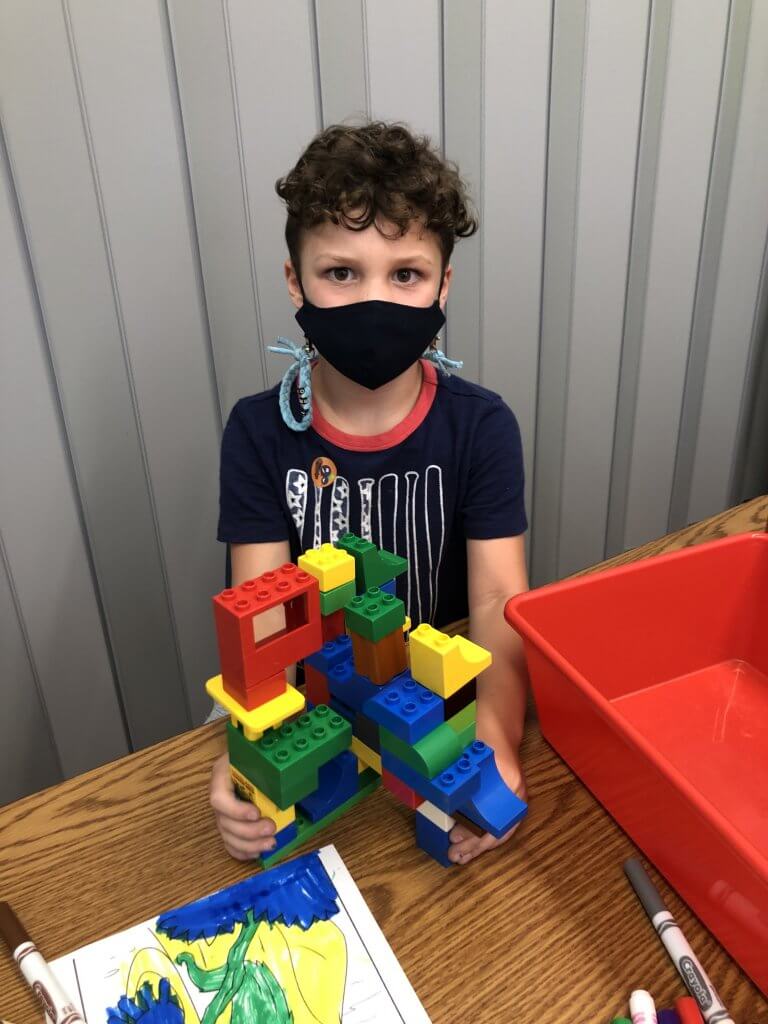
Then, on our second day, we jumped right into our first curriculum unit of the year, Working for Tzedek (justice). In the first story we unpacked how Miriam and Aharon don’t like that Moshe married a Cushite woman, so they engage in lashon hara, speaking ill of her behind Moshe’s back. Miriam ends up getting punished with snow-white scales called tzara’at all over her body. Her punishment is visible to the whole community. Aharon is distressed and asks for Moshe’s help. Moshe then cries out to God to heal her.
We looked at this story from the perspective of upstanders and bystanders. Who in the story is an upstander? A bystander? Here’s what the Garinim think:
- Aharon is an upstander because he did something active – he said something to Moshe about Miriam’s sickness.
- At first Moshe was a bystander, but then he turned into an upstander after Aharon talked to him because that made him cry out to God.
- God is a bystander because God just lets the scales stay on Miriam. I don’t even think God does anything about them after Moshe cries out to God.
What does it mean to be an upstander? How do we do it? What makes it difficult? The Shorashim (1st and 2nd graders) decided that it was easy to stand up to something like a bug, it’s sometimes hard to stand up to another kid, and it’s usually pretty hard to stand up to a grownup. It is the most difficult to stand up to God because God is really powerful. One kid commented that he thought that since God is everywhere and everything, anytime you stand up to a person or a thing like a bug, you are standing up to God. We think that’s pretty empowering. Everyone agreed that to stand up you need to say something, but one kid pointed out that sometimes it is really hard to find the right words when you have to do that.
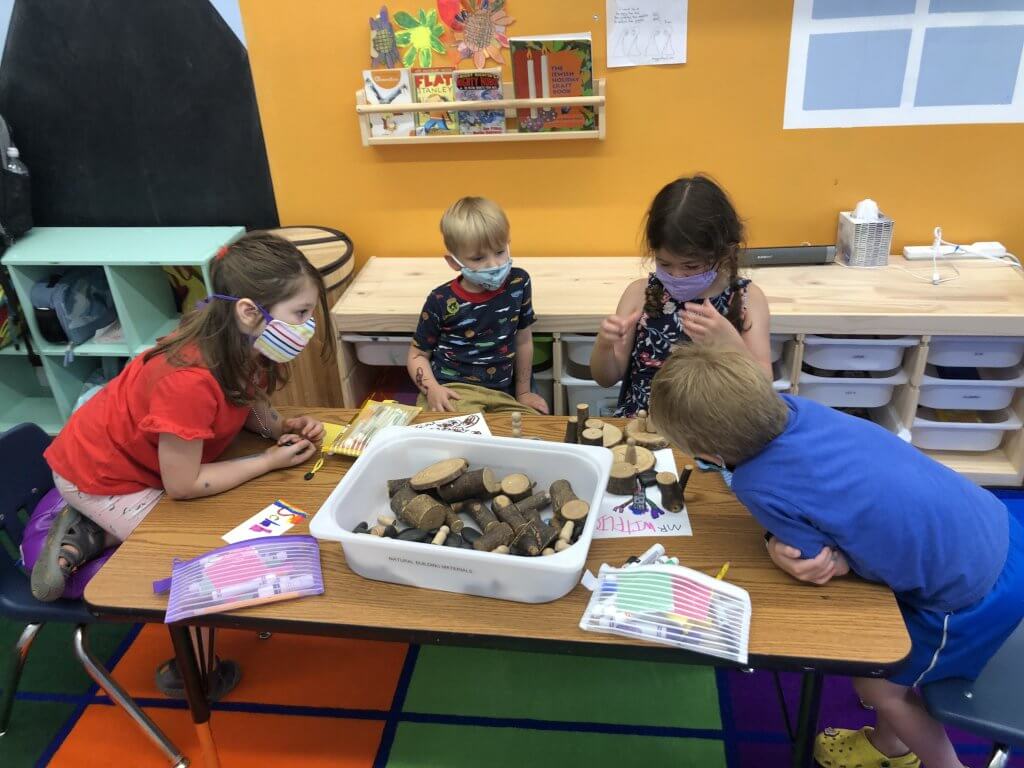
While knowing what to say as an upstander is hard, it can get easier with practice! Here are some scenes the Garinim played through as they explored how we can be upstanders every day. We are super impressed with the compassion and thoughtfulness with which the kiddos approached each of these scenarios.
Scene 1: A kid trips and falls and drops all their belongings. Another kid points and laughs and calls them clumsy. What do the upstanders do?
- Walk over to the kid who fell down and starts to help them pick up their dropped belongings
- Check in on the fallen kid to make sure they’re OK
- Tell the kid who laughed not to do that
Scene 1: A kid comes over to play with their friend. The second kid tells them to go away, that they’re not allowed to play with them. The first kid seems sad. What do the upstanders do?
- Tell off the second kid for not being very nice
- Explains kindly to the second kid that it’s OK for them to want space or time to play alone, but that they can ask for it in a different tone or by offering to play with the first kid at another time
- Help the first kid find another activity in the meantime
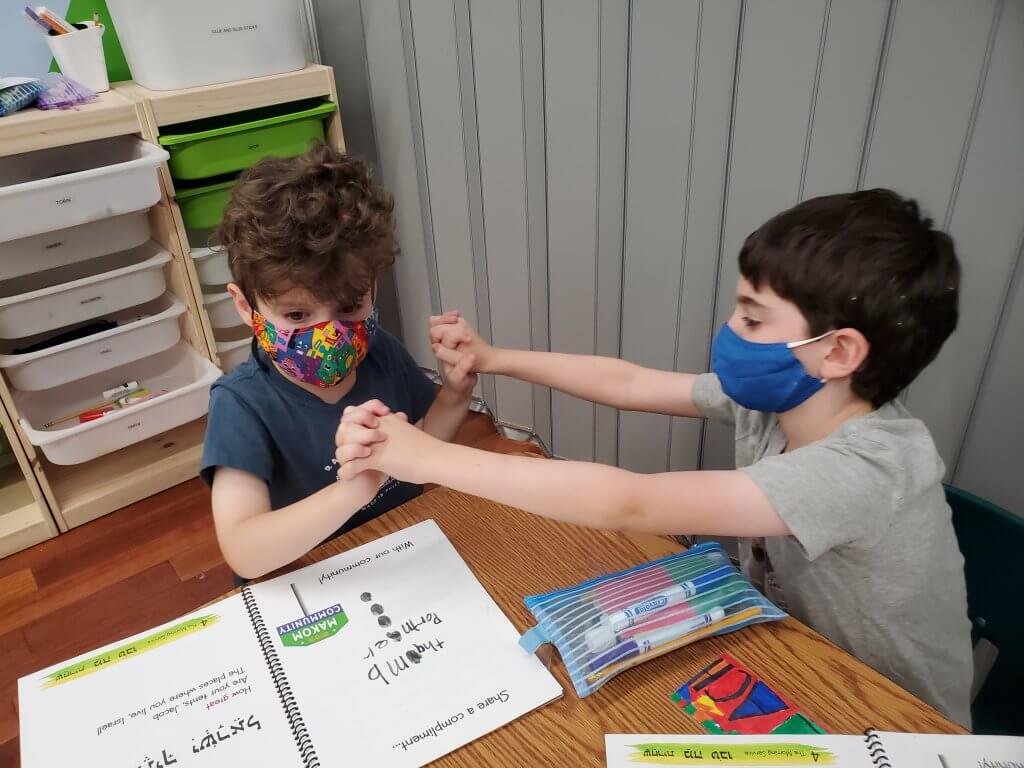
The Nitzanim (3rd and 4th graders) zoomed out from looking specifically for upstanders in the story and noticed more broadly that there were lots of different ways the characters responded to their concerns about others. Miriam and Aharon were concerned about their brother and who he had married, so they talked about her behind her back. On the other hand, Moshe was concerned about his sister, so he prayed to God to help her.
The Nitzanim got to practice listening to each other’s concerns and figuring out how to help each other. They anonymously wrote down their worries about this coming school year and put them in a basket. Then, with everyone’s eyes closed, Noa read the concerns aloud and kiddos raised hands when they resonated with one of them. Our worries and feelings included:
- I’m never going to see my friends again
- I’m annoyed that I have to wear a mask
- I’m worried I’ll be bored
- I hope my teacher is nice to people who turn things in late
- I won’t like social studies class
- I don’t know if I’ll ever be in school in person again
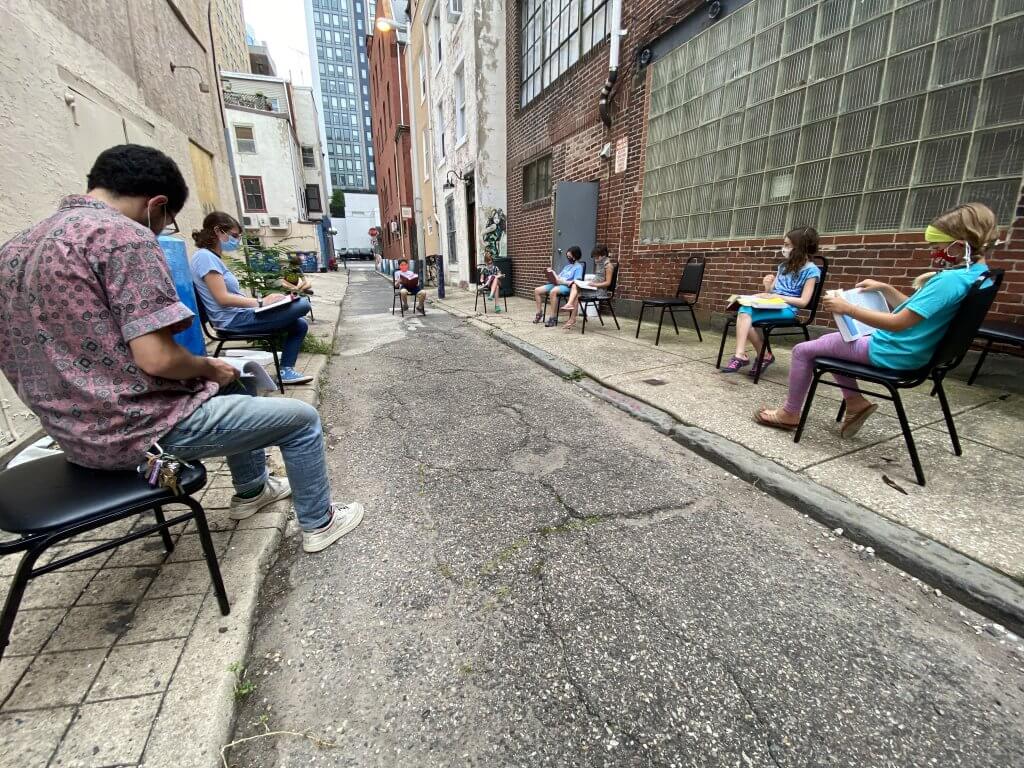
So, how do we respond to our friends’ concerns?
- Ask “how can I help?”
- Ask “what do you need?”
- Ask if your friend wants help at all. Sometimes they just want to be listened to
- If someone tells you something, make sure you don’t tell anyone else unless they say you can
In the coming weeks, the Nitzanim will be deciding on a service project to do as a class. In this way, we’ll be able to respond to bigger concerns that we face as a society. So far, we’ve been very interested in learning about homeless shelters, pet shelters, and voting rights. I’m so excited to see what project they decide to pursue as we explore working for tzedek!
